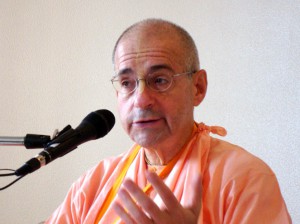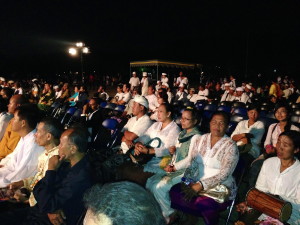This was the story never told
By one who cared not for the world’s gold.
One of the idle and wise,
A beggar with unfathomable eyes.
One who had nothing but dreams to give
To men who are eager to labour and live.
For the world in its wisdom deep and dim
Had taken all pleasure and treasure from him.
This was the story his soul could tell,
Immortal and unfathomable.
There was no record in his brain,
He did not know he should live again.
But there was one who read the whole,
Buried deep in a dead man’s soul.
“In the days of Atlantis, under the wave,
I was a slave, the child of a slave.
When the towers of Atlantis fell,
I died and was born again in hell.
From that sorrowful prison I did escape
And hid myself in a hero’s shape.
But few years had I of love or joy,
A Trojan I fell at the Siege of Troy.
I came again in a little while,
An Israelite slave on the banks of the Nile.
Then did I comfort my grief-laden heart.
With the magic lore and Egyptian art.
Fain was I to become Osiris then,
But soon I came back to the world of men.
By the Ganges I was an outcast born,
A wanderer and a child of scorn.
By the Waters of Babylon I wept,
My harp amongst the willows slept.
In the land of Greece I opened my eyes,
To reap the fields of Plotinus the Wise.
When the great light shattered the world’s closed bars,
I was a shepherd who gazed at the stars.
For lives that were lonely, obscure, apart,
I thank the Hidden One, in my heart,
That always and always under the sun
I went forth to battle and never won.
A slayer of men, I was doomed to abide,
For ever and aye, on the losing side.
Whenever. I dream of the wonderful goal,
I thank the hidden God in my soul
That though I have always been meanly born,
A tiller of earth and a reaper of corn,
Whenever through ages past and gone
The light divine for a moment shone,
Whenever piercing laborious night
A ray fell straight from the Light of Light,
Whenever amid fierce, lightning and storm
The divine moved in a human form,
Whenever the earth in her cyclic course
Shook at the touch of an unknown force,
Whenever the cloud of dull years grew thin
And a great star called to the light within,
I have braved storm and labour and sun
To stand at the side that Holy One.
No matter how humble my birth has been,
There are few who have seen what I have seen.
Mine the shepherd’s star and the reaper’s reward,
And the dream of him who fell by the sword.
One thing I have learned the long years through,
To know the false words from the true.
The slave who toiled on the banks of the Nile
With wisdom gladdened his long exile.
From Buddha at eve by the Ganges’ side
An outcast learnt the worth of the world’s pride.
To the tired reaper, when day was done,
Did Plotinus unveil the hidden sun.
Amongst the stars, on a Syrian night,
A ragged shepherd found the Light of Light.
From dream to dream, o’er valley and hill,
I followed the Lord Christ’s wandering will.
Kings there are who would barter a throne
For the long day’s toil and the light unknown,
The deed of the strong and the word of the wise,
And the night under cold and starry skies—
The white light of dawn on the hillside shed
On Him who had nowhere to lay His head.
Behold there are kings who would change with me,
For the love of the ancient mystery.
Shepherd and reaper and slave I have been,
There are few who have seen what I have seen.
I have been a gipsy since those days,
And lived again in the wild wood ways.
Wise with the lore of those hidden things,
Learnt from Lord Christ in His wanderings,
Beggar and reaper and shepherd and slave,
I am one who rests not in any grave;
I will follow each stormy light divine,
And the secret of all things shall be mine.
These things have I seen, would you bid me mourn
That I was never an Emperor born?”
Filed under:
Poetry 

 The Radha Krsna Temple, or now more commonly Radha Krishna Temple, was the headquarters of the International Society for Krishna Consciousness in London from the late 1960s. The Temple came to prominence when The Beatles, and especially George Harrison, started to publicly express their interest in Eastern philosophy and Krishna consciousness. The Radha Krsna Temple is also the name of an album of devotional music issued by the Temple on The Beatles' Apple Records label, produced by Harrison Read more ›
The Radha Krsna Temple, or now more commonly Radha Krishna Temple, was the headquarters of the International Society for Krishna Consciousness in London from the late 1960s. The Temple came to prominence when The Beatles, and especially George Harrison, started to publicly express their interest in Eastern philosophy and Krishna consciousness. The Radha Krsna Temple is also the name of an album of devotional music issued by the Temple on The Beatles' Apple Records label, produced by Harrison Read more ›  The Radha Krsna Temple, or now more commonly Radha Krishna Temple, was the headquarters of the International Society for Krishna Consciousness in London from the late 1960s. The Temple came to prominence when The Beatles, and especially George Harrison, started to publicly express their interest in Eastern philosophy and Krishna consciousness. The Radha Krsna Temple is also the name of an album of devotional music issued by the Temple on The Beatles' Apple Records label, produced by Harrison Read more ›
The Radha Krsna Temple, or now more commonly Radha Krishna Temple, was the headquarters of the International Society for Krishna Consciousness in London from the late 1960s. The Temple came to prominence when The Beatles, and especially George Harrison, started to publicly express their interest in Eastern philosophy and Krishna consciousness. The Radha Krsna Temple is also the name of an album of devotional music issued by the Temple on The Beatles' Apple Records label, produced by Harrison Read more › 
 Gokul is a nagar panchayat in Mathura district in the Indian state of Uttar Pradesh. It is located 15 km south-east of Mathura.
Gokul is a nagar panchayat in Mathura district in the Indian state of Uttar Pradesh. It is located 15 km south-east of Mathura.  The New Talavan farm community was begun as a project in June of 1974. At first it was just a few devotees from the New Orleans temple who came out and slowly began planting gardens. They worked as time permitted and then returned to the New Orleans temple at night, a round trip of about 130 miles. Soon some devotees began staying on the farm full time.
The New Talavan farm community was begun as a project in June of 1974. At first it was just a few devotees from the New Orleans temple who came out and slowly began planting gardens. They worked as time permitted and then returned to the New Orleans temple at night, a round trip of about 130 miles. Soon some devotees began staying on the farm full time. 
 It is said that Ohrid is the, ‘meanest town in Macedonia.’ Local tradition says the Devil created Ohrid. The saying goes that when someone challenged that the town is so beautiful the Devil smiled and replied, “Yes, but the people are as mean as can be!”
It is said that Ohrid is the, ‘meanest town in Macedonia.’ Local tradition says the Devil created Ohrid. The saying goes that when someone challenged that the town is so beautiful the Devil smiled and replied, “Yes, but the people are as mean as can be!” 


 On Sunday afternoon, Mr.Rajiv Shukla, Member of Parliament, IPL Chairman, BCCI Vice President came to ISKCON Juhu for Darshan of Sri Sri Radha Rasabihariji. I talked to him that it's nice that you came to temple for darshan...
On Sunday afternoon, Mr.Rajiv Shukla, Member of Parliament, IPL Chairman, BCCI Vice President came to ISKCON Juhu for Darshan of Sri Sri Radha Rasabihariji. I talked to him that it's nice that you came to temple for darshan...  HH Bhakti Vrajendranandana Swami, ISKCON Malaysia President, has attained full consciousness. Semi-solid food is being recommended by doctors as Maharaja's appetite is gradually improving. His liver is functioning better than before. Speech clearer, physical strength picking up. In fact, Maharaja is so eager to speak that he is calling devotee on phone
HH Bhakti Vrajendranandana Swami, ISKCON Malaysia President, has attained full consciousness. Semi-solid food is being recommended by doctors as Maharaja's appetite is gradually improving. His liver is functioning better than before. Speech clearer, physical strength picking up. In fact, Maharaja is so eager to speak that he is calling devotee on phone  Vegavati devi dasi, from Iskcon Alachua, gave the Invocation at the County Commissioners Meeting. She read from the Bhagavad-gita where Krishna speaks of the particular responsibilities of leaders
Vegavati devi dasi, from Iskcon Alachua, gave the Invocation at the County Commissioners Meeting. She read from the Bhagavad-gita where Krishna speaks of the particular responsibilities of leaders 
 Sewa is a universal concept, which involves performing an act of kindness without expectation of reward. It is performed selflessly and without ulterior motive.
As a concept, Sewa in embedded in Indian traditions, and is actively promoted by different cultures and faiths - as the core belief is the same - to sacrifice your time and resources for the benefit of others without wanting anything in return.
Sewa is a universal concept, which involves performing an act of kindness without expectation of reward. It is performed selflessly and without ulterior motive.
As a concept, Sewa in embedded in Indian traditions, and is actively promoted by different cultures and faiths - as the core belief is the same - to sacrifice your time and resources for the benefit of others without wanting anything in return.  There are many purificatory processes for advancing a human being to spiritual life. The marriage ceremony, for example, is considered to be one of these sacrifices. It is called vivaha-yajna. . . . The Lord says here that any sacrifice that is meant for human welfare should never be given up. Vivaha-yajna, the marriage ceremony, is meant to regulate the human mind so that it may become peaceful for spiritual advancement. (Bg. 18.5, purport)
There are many purificatory processes for advancing a human being to spiritual life. The marriage ceremony, for example, is considered to be one of these sacrifices. It is called vivaha-yajna. . . . The Lord says here that any sacrifice that is meant for human welfare should never be given up. Vivaha-yajna, the marriage ceremony, is meant to regulate the human mind so that it may become peaceful for spiritual advancement. (Bg. 18.5, purport) 



